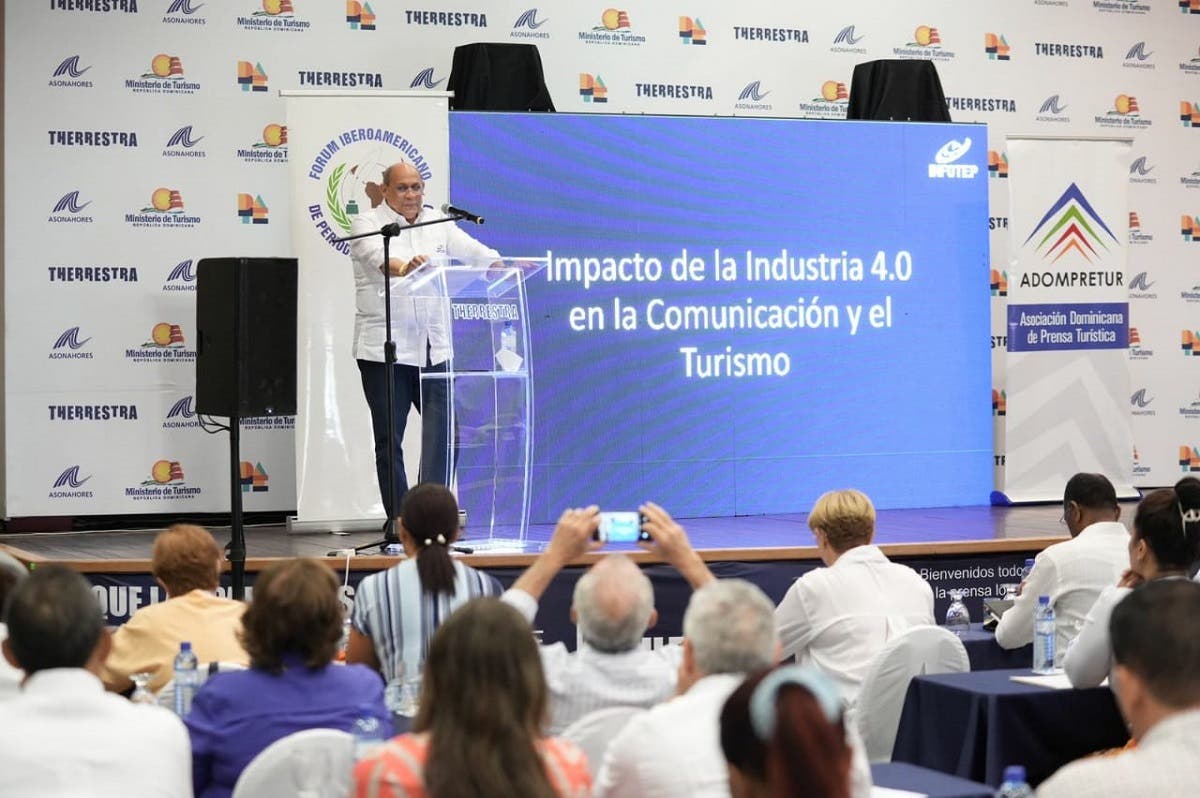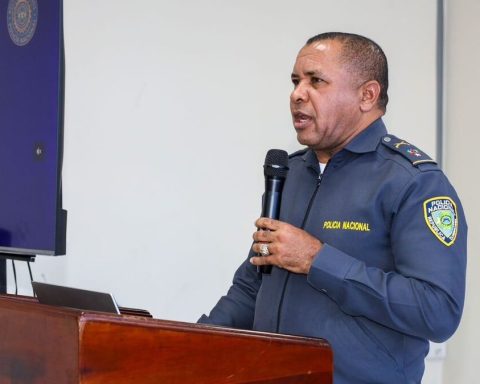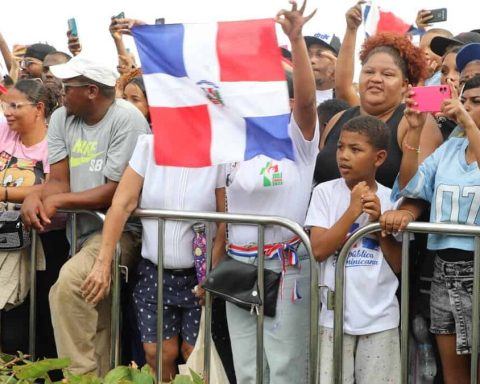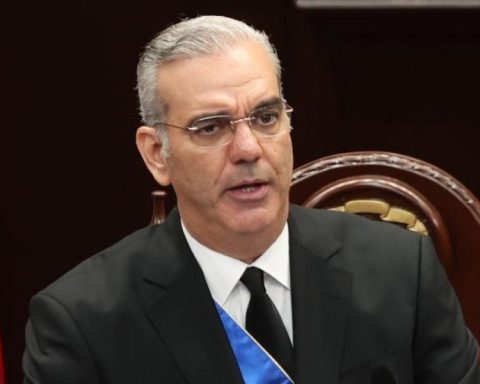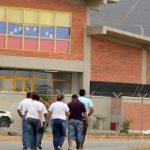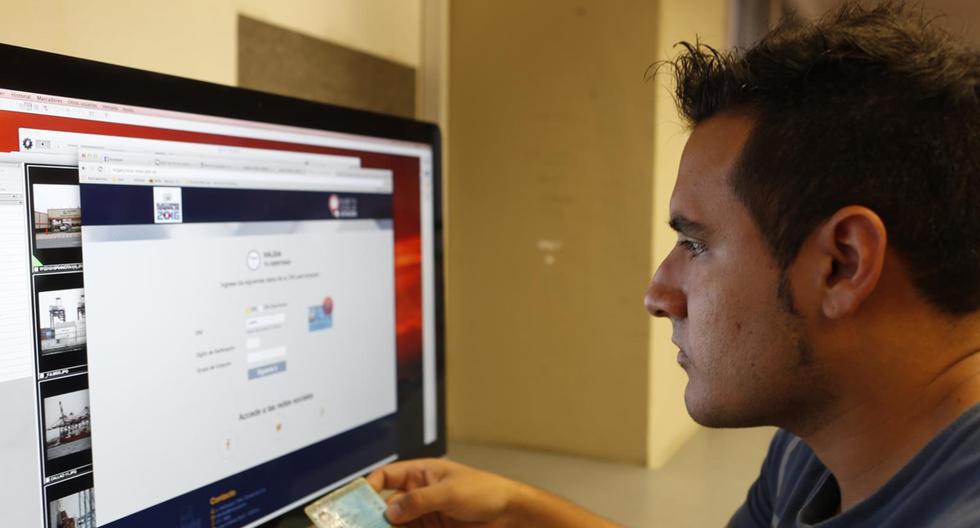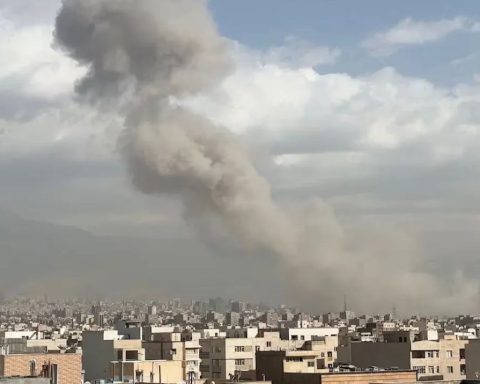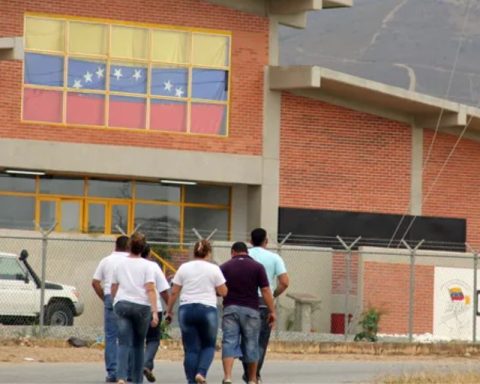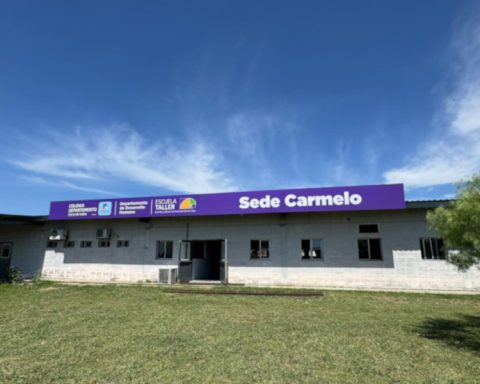Santo Domingo.- The increase in tourists in the country goes hand in hand with an increase in the demand for jobs and for this reason the National Institute of Professional Technical Training (INFOTEP) is committed to developing training plans to train the workers demanded by the Tourism sector.
These statements were offered by the general director of INFOTEP, Rafael Santos Badía, during his participation in the conference “Impact of Industry 4.0 on Communication and Tourism”, in an activity carried out by the Ibero-American Forum of Tourism Journalists (FIPETUR) , headed by its president, Luis José Chávez.
Santos Badía highlighted, before specialized journalists, that INFOTEP seeks to promote an innovative and quality service offer, aligned with the development needs of industry 4.0, to contribute to employability, entrepreneurship and increase the productivity of companies.
“We are implementing adaptation strategies so that technical training responds to the challenges inherent in the 4.0 Revolution, such as the rise of technological advances, big data, cloud computing, research and development, and greater bandwidth,” he explained.
The director of INFOTEP said that digitization has touched all segments of the tourism ecosystem and provides the tools, frameworks and technologies to create or add value to products, services and experiences in this sector.
To meet the training needs of qualified technicians for tourism, the institution has specialized centers such as the Hotel, Gastronomy and Pastry School, located in Higüey, which has a curricular offer based on the specific demands of this thriving tourism sector. the national economy, said Santos Badía.
He explained that in this center technicians are trained to serve in areas such as bar and restaurant, gastronomy, molecular cuisine, sensory analysis, housekeeper and tour guide. Additionally, training in technology such as the Internet of Things, cybersecurity, virtual reality, software development and machine learning is included.
We invite you to read: The country received 626,010 non-resident tourists in April 2022
Santos Badía stressed that INFOTEP is committed to the development of the country, to sustained economic growth that is reflected in better living conditions for the people. “This is why we work to create the physical and technological infrastructure that allows us to bring technical training to all provinces to train specialized workers, according to the needs of the market.”
At the conference were the journalist and tourism marketing expert, Ignacio Vasallo; the president of the Brazilian Association of Tourist Press, Evandro Novak; the vice president of FIPETUR, María Shaw and, from virtuality, the journalist Marcelo Risi, director of communication for the World Tourism Organization and professor at the Complutense University of Madrid.
Also members of the Digital Media Society (SODOMEDI) and the Dominican Tourist Press Association (ADOMPRETUR).
Industry 4.0 and communication
The director of INFOTEP stated at the conference “Impact of Industry 4.0 on Communication and Tourism” that technological advances affect all areas and are reflected from the way tourists demand their travel destinations, to the excursions that do upon arrival.
“These changes equally impact communication. Technological development has allowed information to spread quickly to a greater number of people and generate interaction”, she pointed out.
Santos Badía stressed that the media are great allies of the tourism sector, because they influence the generation and dissemination of multiplatform content and are promoters of key messages.
Similarly, he said that the development of new technologies applied to the media has given them the power to generate and transmit content that influences people’s decisions, to the benefit of the tourism sector.
“The media have become great allies of good public policies, disseminating key messages that have great impact nationally and internationally,” he said.
In its 2017 report, the UNWTO reported that digital platforms have significantly reduced the costs involved in the production of tourism services, which is why this sector has become the spearhead of digital transformation, to respond to the new challenges posed by travelers seeking unique experiences, new products and greater connectivity.
This transformation, explained the general director of INFOTEP, is supported by four main technologies: the cloud, social networks, mobile devices and information and communication technologies.
tourism rebound
In his exhibition Impact of Industry 4.0 on Communication and Tourism, Santos Badía highlighted the importance of the tourism sector in the economy. Also your progress. He recalled that in 2021 the economic activity of hotels, bars and restaurants reached a growth of 39% compared to the previous year and that in the first quarter of 2022 the growth was higher than expected.
